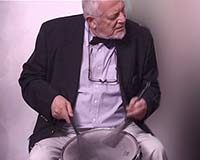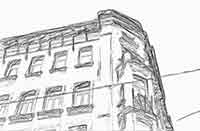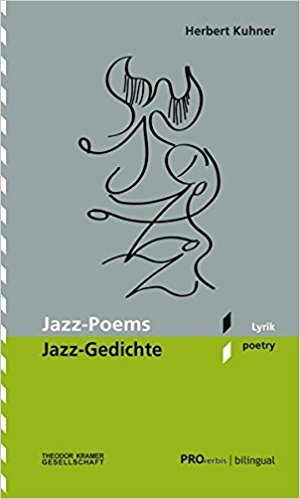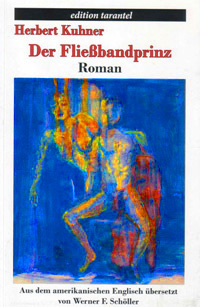-Margarethe Herzele, Poet and Artist

Margarethe Herzele
She’s gone now, softly slipping away into eternity, leaving her legacy of poems and artworks. I had the honor and privilege of translating her marvelous poems into English. Now I have qualms of conscience for not continuing and having done more. I had the honor and privilege of translating her marvelous poems into English. Now I have qualms of conscience for not continuing and having done more.
Carinthian Love Songs dates back to the late Seventies. At the time I wrote: “There is a pristine and pagan quality to her work on canvass and page. Indeed, she is doubly a sorceress – with both pen and brush.”
Goodbye, dear Margarthe! We thank you for enriching our world with your poems and artworks. We will treasure your legacy.
-Harry Kuhner
Carinthian Love Songs
„A bilingual (German-English) edition. Using landscapes that are both beautiful but ominous and threatening as background, Herzele relates the legends of her native Carinthia. Her poetic narratives, illustrated with her pen & ink and brush, have the surreal and cruel flavoring of fairy tales. They are dreams that sometimes take on nightmare aspects. There is a pristine and pagan quality to her work on canvas and page. Indeed she is doubly a sorceress – with both pen and brush.“
Margarethe Herzele ist Malerin und Dichterin – eine Künstlerin, gleicherweise zu Hause. Die Farben ihre Maler- und Dichter-palette leuchten. ihre Landschaften sind schön, doch unheilvoll drohend. Sie als Hintergrund benutzend, erzählt sie die Geschichten ihrer Kärntner Heimat. Herzeles Erzählungen haben den unwirklichen und grausamen Beigeschmack von Märchen: Träume die sich manchmal in Alpträume verwandeln. Ursprünglichkeit und heidnische Kraft sprechen aus ihrer lyrischen Arbeit. So ist sie zweifach Zauberin – sowohl mit Feder als auch mit Pinsel.
-Herbert Kuhner

Bild von Margarethe Herzele
Margarethe Herzele
Poems
Der letzte Tropfen Schnee
Der letzte Tropfen Schnee
rinnt von den Marillenzweigen.
Süßer Saft
in roten Ästchen
taut langsam auf
Die Mutter ruft das Kind
– und das war ich .
Die Brüder toben noch herum.
Ich hör‘ sie springen
wie die jungen Pferde.
Den Vater hör ich lachen
hinterm Haus ….
Heut sind die heben Brüder
längst schon tot
und nur die Eltern
– schwache Hüflen – leben.
The Last Snowflake
The last bit of snow
melts on the apricot branches.
Sweet sap
in red twigs
slowly thaws
A mother calls her child
– and that was I.
My brothers are roughhousing.
I hear them jump
like young horses.
I hear father laughing
behind the house….
My dear brothers
have been dead for years
Only my parents – fragile shells –
are still alive.
Mutter Chaos
Mutter.
Mutter Chaos!
Gelbgesattelt reit’ich
auf der stärksten
meiner kleinen
Weinbergschnecken.
Hacke mit den Lattenstöcken
Flirrstreifen in den Maiwind.
Mutter Chaos, Blutmutter, Traummutter,
Stundenschlag – und Einschlafmutter.
Fiebermutter mit der Perle –
kein Zurück mehr.
Mother Chaos
Mother
Mother Chaos
On a yellow saddle
I ride the sturdiest
of my small snails
With pickets
I cut strips from the May wind.
Mother Chaos, Blood-Mother, Dream-Mother
Mother of tolled hours and of sleep.
Fever-Mother with the pearl –
there’s no going back
Übermorgen
Übermorgen kommst du.
Ich wartete
und die Blüte fiel ab
von meinem Leib:
die goldenen Schuppen von den Fingern,
die silbernen Perlen der Haut.
Jetzt bin ich Gemäuer
zersprungener Tempel,
Lianen und Schlangen
halten mich noch.
Kleine Eulen pickten
das gelbe Licht aus meinen Augen.
Wenn es regnet im Dschungel
hocken sie still
an meiner Brust.
The Day After Tomorrow
You’ll come
the day after tomorrow.
I waited
and the bloom fell away
from my body –
the gold scales from my fingers,
the silver pearls from my skin –
Now I am the walls
of a gutted temple,
still held up
by vines and snakes.
Small owls pecked
the yellow light from my eyes.
When it rains in the jungle
they perch silently
on my breast.
März Mondnacht
Er sucht und sucht.
Er geht und geht.
Er horcht und steht –
der Mann mit dem Pelzchen.
Bleiern die Nacht.
Sie frißt den Mond
und wird nicht satt.
Mattglänzend, fahl, antwortlosdas –
nackte Land.
Da schlägt er den Himmel
– wuttrommelartig –
doch nichts spürt die Faust!
Nur die Luft durchdringt
scharfzackig grün wie Flaschenglas,
seinen Hals.
March Moon-Night
He searches and searches.
He walks and walks
He stops and listens-
the man with the furs.
The night is leaden.
it devours the moon
and remains unsatisfied.
Gleaming dully, sallow, silent-
the naked land.
He strikes at the sky,
drumming angrily,
but his fist feels nothing.
Only the air,
sharp and green like bottle glass,
penetrates his neck.
Am Ufer des Dschang
Am Ufer des Dschang
steht eine Tote.
Der Wind trägt die Asche ihres Gesichtes fort
und die Hand
zerbröckelt wie Lehm.
Das Wasser ist schwarz,
Mulden und Wellen.
Und hinter einem schmutzigen Himmel –
die metallische Scheibe Sonne ….
On the Banks of the Chang
A dead woman stands
on the banks of the Chang.
The wind carries the ashes
of her face away
and her hand crumbles like clay.
The water is black,
troughs and waves
And behind the dirty sky
the metallic disc of the sun….
Translator. (Key Words: Art, Surrealism, Poetry, Austrian Poetry). Herzele Margarethe Carinthian Love Songs. Gedichte und Zeichnungen
English Translations: Herbert Kuhner
Verlag: Carinthia, Klagenfurt, 1979
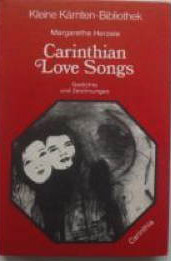
Bilingual Volumes of Poetry by Austrian Women Poets
translated by Herbert Kuhner
Margarethe Herzele
Else Keren
Tamar Radzyner
Stella Rotenberg
Waltraud More










 Users Today : 170
Users Today : 170 Users Yesterday : 165
Users Yesterday : 165 This Month : 2152
This Month : 2152 This Year : 19085
This Year : 19085 Total Users : 177180
Total Users : 177180 Views Today : 390
Views Today : 390 Total views : 1867625
Total views : 1867625 Who's Online : 11
Who's Online : 11
